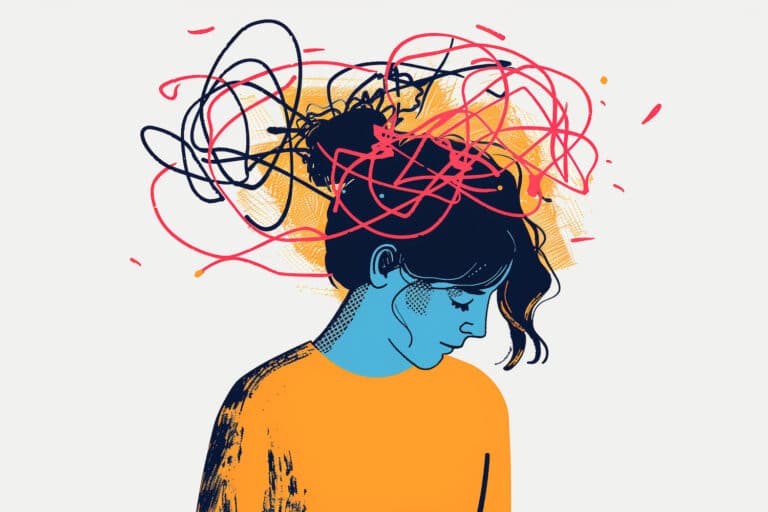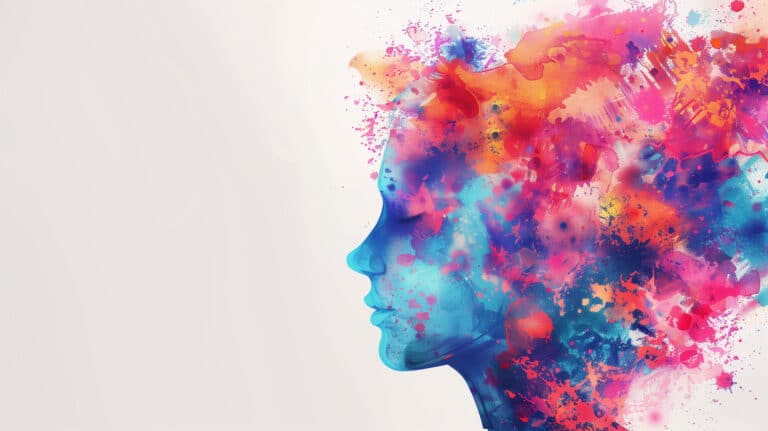A recent CDC report shows that emergency room visits for teen girls with eating disorders have doubled from 2019 to 2022.1 There are several theories for this alarming rise, but one thing is clear: Kids need help sooner.
Research indicates that 22% of children and teens struggle with disordered eating.2 Prompt identification and treatment of eating disorders in teens is essential for improving their overall well-being and often for saving their lives.
What are eating disorders?
Eating disorders are life-threatening illnesses that involve an unhealthy relationship with food that has a significant impact on one’s physical, mental, and emotional health.
Anorexia nervosa is perhaps the most well-known eating disorder. People suffering from anorexia will restrict their food intake and experience significant weight loss.3
Bulimia nervosa is another type of eating disorder in which someone engages in binge eating followed by compensatory behavior, also known as purging, to avoid weight gain. Common forms of purging include, but are not limited to, self-induced vomiting, laxative use, diuretic use, or excessive exercise.4
Binge eating disorder involves repeatedly eating a large amount of food within a specific time frame. The person suffering from the eating disorder feels out of control while they eat and may also experience any of the following:5
- Rapidly eating their food
- Eating when not physically hungry
- Feeling uncomfortably full after eating
- Eating alone due to embarrassment about their eating patterns
- Feelings of shame, guilt, or depression after eating
Causes of eating disorders in teens
Like most illnesses, there is not one specific cause of eating disorders in teens. Instead, there are a variety of sociocultural, biological, and environmental factors that increase one’s likelihood of developing disordered eating.
Sociocultural factors
Media influence is likely the most obvious culprit contributing to eating disorder development. With the rise of social media, teens are bombarded with information about the newest diet fads, before-and-after photos, and articles about the latest celebrity who has jumped on the weight-loss medication trend.
Individuals suffering from eating disorders are not the only people who are negatively impacted. Our culture shapes the media’s perspective on health and body image.
Well-meaning family members may encourage children to eliminate sugar, eat less, or exercise to lose weight. This can create an unhealthy relationship with food, leading to negative body image and disordered eating.
Psychological factors
Those with low self-esteem may develop an eating disorder because their perceived worth is dependent on their appearance. Body dissatisfaction also plays a significant role in disordered eating.
However, most people with eating disorders are never satisfied with the amount of weight lost. They often have a skewed perception of self and feel the ongoing need to lose weight, even if they are severely malnourished or significantly underweight.
Genetic & biological factors
Individuals who suffer from other mental illnesses, such as depression, anxiety, OCD, or bipolar disorder, may develop a co-occurring eating disorder. The eating disorder is often used as a way to cope with their mental illness. Plus, there is evidence that there is a genetic component of eating disorder onset.6
Other chronic conditions can increase the risk of eating disorders, especially gastrointestinal conditions or food allergies. Teens with these illnesses may be restricted in the variety or quantity of food they can eat. As they limit food due to their physical condition, these eating patterns may begin to morph into an eating disorder.
Environmental factors
Family dynamics can also impact a teen’s risk of developing an eating disorder. Families that restrict certain foods, such as sugar, carbohydrates, food additives, etc., may inadvertently increase a child’s fear of eating. Additionally, families that highly value thinness or appearance are at higher risk for developing an eating disorder.
Many teens with eating disorders have a history of trauma.7 Like with mental illnesses, the eating disorder usually serves as a coping mechanism to help with the intense emotions associated with traumatic experiences.
Food insecurity can increase one’s risk of disordered eating. Teens who have experienced inconsistent access to a variety of foods may develop an eating disorder as they learn how to self-regulate around food.
Warning signs of eating disorders in teens
Getting help as soon as possible can increase your teen’s chances of making a full recovery. Knowing the warning signs allows for promptly identifying and treating any eating issues.
Behavioral signs
Behavioral signs will usually appear before the physical side effects of the eating disorder. However, the behavioral aspects may be less obvious. If you are concerned that your teen is struggling with an eating disorder, watch for the following behaviors:
- Rigid food rules or rituals
- Frequent trips to the bathroom after meals
- Lack of flexibility with food choices
- Increased talk about dieting or weight loss
You may also notice emotional and social signs of eating disorders in your teen. Many adolescents struggling with disordered eating will experience frequent mood swings and social withdrawal. They may also show signs of increased anxiety or depression.
Physical signs
Many people will realize the seriousness of their loved one’s eating disorder when they begin to see physical changes, such as:
- Rapid weight changes
- Abnormal menstrual cycles
- Hair loss
- Tooth decay
- Dizziness or fainting
Impact of eating disorders on teen health & well-being
Eating disorders take a toll on physical, mental, and social health. This can have a significant negative impact on their quality of life.
Physical Effects
The medical complications associated with restrictive eating disorders are often a result of chronic food restriction. However, this sustained strain on the body can sometimes result in a sudden medical emergency. Likewise, purging can quickly cause electrolyte imbalances that create a life-threatening situation. Physical effects of eating disorders in teens include:8
- Slowed digestion
- Difficulty regulating body temperature
- Abnormal heart rhythms
- Malnutrition, including vitamin or mineral deficiencies
- Bone loss
- Organ damage
- Seizures
Mental & emotional effects
Teens suffering from an eating disorder will be impacted mentally and emotionally. Eating disorders are associated with low self-esteem, depression, and anxiety.
These co-occurring issues, combined with malnutrition, often result in mood swings, anger outbursts, and a general struggle to cope with day-to-day life.
Many kids will have difficulty concentrating and may spend more time sleeping. This may result in decreased interest or motivation at school.
Social effects
Many teens with restrictive eating disorders will avoid events or activities involving food. While they are skipping the food, they are also missing social interactions with peers and loved ones.
This can lead to patterns of isolation that ultimately worsen issues like depression, anxiety, and disordered eating. Avoidance of social events can also create strain on relationships.
Diagnosis & treatment of eating disorders in teens
It is important to seek medical evaluation for your child’s eating disorder. Be honest about the specific symptoms you notice, your child’s behavior changes, and how they impact their quality of life. Their doctor may have your child obtain certain labs and an EKG to help them determine if your child is experiencing any heart problems.
Other components of treatment may include the following:
- Psychotherapy options (individual therapy, family therapy, group therapy)
- Nutritional counseling and meal planning
- Medications for co-existing conditions (such as depression or anxiety)
- Residential or intensive outpatient programs
How to help a teen with an eating disorder
There are some practical steps you can take to help your teen heal from their disorder, including:
- Educating oneself about eating disorders
- Communicating with the teen in a supportive manner
- Encouraging professional help and offering support
- Creating a positive and non-judgmental environment
Help is Just a Call Away
If you believe that your teen is struggling with an eating disorder, it’s crucial to get the proper treatment right away. Magnolia Creek offers compassionate eating disorder treatment for teens ages 12 and up. Contact us at 205.678.4373 to learn more about treatment options.
References
- https://www.cdc.gov/mmwr/volumes/71/wr/mm7108e2.htm
- https://jamanetwork.com/journals/jamapediatrics/fullarticle/2801664
- https://www.nationaleatingdisorders.org/what-are-eating-disorders/
- https://www.nationaleatingdisorders.org/bulimia-nervosa/
- https://www.nationaleatingdisorders.org/binge-eating-disorder/
- https://www.ncbi.nlm.nih.gov/pmc/articles/PMC3010958/
- https://onlinelibrary.wiley.com/doi/abs/10.1002/erv.2892
- https://www.nationaleatingdisorders.org/health-consequences/




